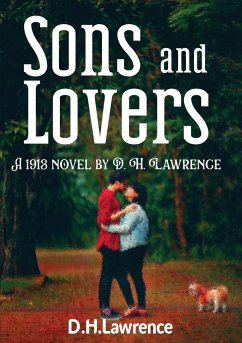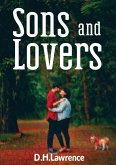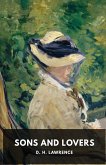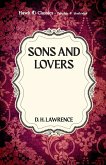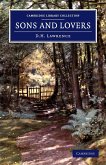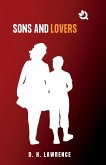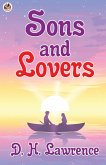Sons and lovers : A 1913 novel by D. H. Lawrence A 1913 novel by D. H. LawrenceFirst published in 1913, this provocative semi-autobiographical novel reflects the struggles of Paul Morel, an artist who cannot reciprocate love for other women while under the influence of his stifling mother. Unconsciously taught to despise his father and eschew other women, Paul comes even further under his mother's psychological grasp after the death of his older brother. When he eventually does fall in love, the results of confused affection and desire are painful for all concerned. While "Sons and Lovers" scandalized its original English readers for its oedipal implications and social criticism, it remains a powerful story of terrifying inner and outer conflict and intense sensuality. Editorial Reviews :Sons and Lovers was the first modern portrayal of a phenomenon that later, thanks to Freud, became easily recognizable as the Oedipus complex. Never was a son more indentured to his mother's love and full of hatred for his father than Paul Morel, D.H. Lawrence's young protagonist. Never, that is, except perhaps Lawrence himself. In his 1913 novel he grappled with the discordant loves that haunted him all his life--for his spiritual childhood sweetheart, here called Miriam, and for his mother, whom he transformed into Mrs. Morel. It is, by Lawrence's own account, a book aimed at depicting this woman's grasp: "as her sons grow up she selects them as lovers--first the eldest, then the second. These sons are urged into life by their reciprocal love of their mother--urged on and on. But when they come to manhood, they can't love, because their mother is the strongest power in their lives."Of course, Mrs. Morel takes neither of her two elder sons (the first of whom dies early, which further intensifies her grip on Paul) as a literal lover, but nonetheless her psychological snare is immense. She loathes Paul's Miriam from the start, understanding that the girl's deep love of her son will oust her: "She's not like an ordinary woman, who can leave me my share in him. She wants to absorb him." Meanwhile, Paul plays his part with equal fervor, incapable of committing himself in either direction: "Why did his mother sit at home and suffer?... And why did he hate Miriam, and feel so cruel towards her, at the thought of his mother. If Miriam caused his mother suffering, then he hated her--and he easily hated her." Soon thereafter he even confesses to his mother: "I really don't love her. I talk to her, but I want to come home to you. "The result of all this is that Paul throws Miriam over for a married suffragette, Clara Dawes, who fulfills the sexual component of his ascent to manhood but leaves him, as ever, without a complete relationship to challenge his love for his mother. As Paul voyages from the working-class mining world to the spheres of commerce and art (he has fair success as a painter), he accepts that his own achievements must be equally his mother's. "There was so much to come out of him. Life for her was rich with promise. She was to see herself fulfilled... All his work was hers."The cycles of Paul's relationships with these three women are terrifying at times, and Lawrence does nothing to dim their intensity. Nor does he shirk in his vivid, sensuous descriptions of the landscape that offers up its blossoms and beasts and "shimmeriness" to Paul's sensitive spirit. Sons and Lovers lays fully bare the souls of men and earth. Few books tell such whole, complicated truths about the permutations of love as resolutely without resolution. It's nothing short of searing to be brushed by humanity in this manner. --Melanie Rehak
Hinweis: Dieser Artikel kann nur an eine deutsche Lieferadresse ausgeliefert werden.
Hinweis: Dieser Artikel kann nur an eine deutsche Lieferadresse ausgeliefert werden.

